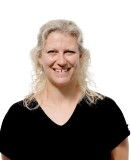
Mathematics
The intent of ISB’s mathematics curriculum is to develop students’ fluency in mathematical fundamentals, enhance their problem-solving skills, and encourage logical reasoning. It aims to equip students with a strong foundation in numeracy that will be applicable in everyday life and future learning. The curriculum also fosters an appreciation of the beauty and power of mathematics as a universal language, encouraging students to be curious, confident, and resilient when approaching mathematical challenges.
The curriculum is structured to build progressively on key concepts, ensuring that students acquire a deep understanding of number systems, algebra, geometry, statistics, and probability. Lessons emphasise the interconnectivity of these topics, helping students see how different areas of mathematics relate to one another and to real-world applications. By integrating examples from various cultures and global contexts, students will appreciate how mathematics transcends borders, fostering a sense of global citizenship. Students are regularly exposed to problem-solving tasks that require them to apply their knowledge in practical contexts. This approach helps them become independent thinkers who can approach unfamiliar problems with confidence.
We aim to develop fluency in mathematical methods through regular practice and reinforcement of key concepts. We aim to improve reasoning skills, enabling students to justify their thinking, make logical deductions, and critically evaluate solutions in a global context. Lastly, it aims to enhance problem-solving abilities, preparing students to tackle complex, unfamiliar challenges in a systematic way. By the end of their education, students should possess the skills, understanding, and confidence to use mathematics effectively in further education, careers, and daily life. Moreover, they will be equipped to engage thoughtfully with global issues, recognising the role of mathematics in promoting understanding and collaboration across cultures.
Subject Staff

Head of Faculty

Teacher

Teacher

Teacher

Teacher

Teacher

Teacher

Curriculum Journey
Maths Curriculum

Curriculum Outline

Assessment Criteria
Key Stage 3 (Year 7-9)
Key Stage 4 (Year 10 & 11)

Y10 Curriculum Outline

Y11 Curriculum Outline
Pre-U (Year 12 & 13)

Y12 Curriculum Outline

Y13 Curriculum Outline
Which degrees does this IB subject complement?*
Computer Science
Economics
Engineering
Chemistry
Medicine
Dentistry
Data Science
Physics
Statistics
Accounting & Finance
Architecture
Earth Sciences
*The degrees listed are some examples of courses that the subject supports but this is not an exhaustive list. In addition, please note that these subjects are not compulsory for each degree. Please consult individual university websites for specific requirements for their courses.



